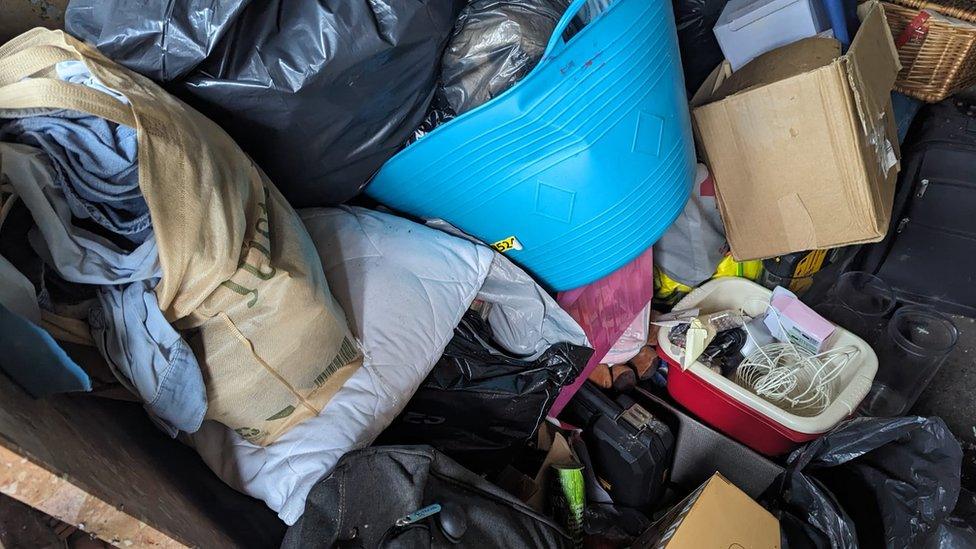The charity that helps hoarders clear their homes
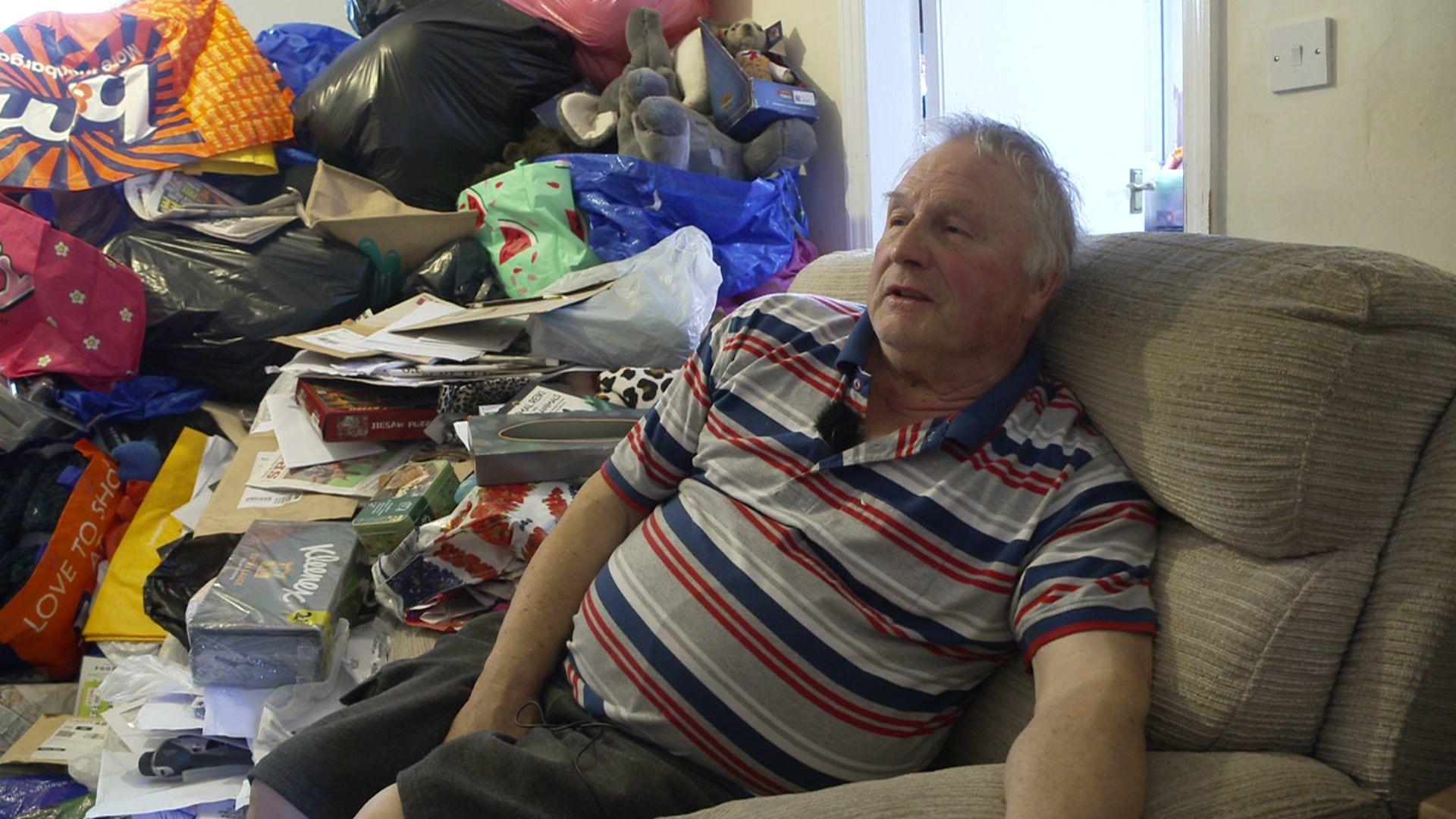
John Wilson said he was "embarrassed and ashamed" about the state of his home
- Published
A charity that helps hoarders to clear their homes and address their habits has been awarded a £400,000 grant from the National Lottery.
Community Bees in York works with people experiencing loneliness and isolation by offering social activities and interaction.
The organisation also receives around six referrals per week to provide support and assistance for hoarders.
The charity's founder, Michaela Shaw, said their work could "give people their lives back".
Hoarding is a recognised mental health disorder and she said many of their service users struggled to clear clutter from their homes, leading to unsafe and unsanitary living conditions.
Retired cleaner Ian Cooper, 67, began collecting old-fashioned items and antique china - but when he and his wife, who has Alzheimer's, downsized to a bungalow, they filled 12 skips with unwanted belongings.
He said: "I see something and think: 'We would like that, we will have to have that'."
Ms Shaw helped the couple to clear their house ahead of the move.
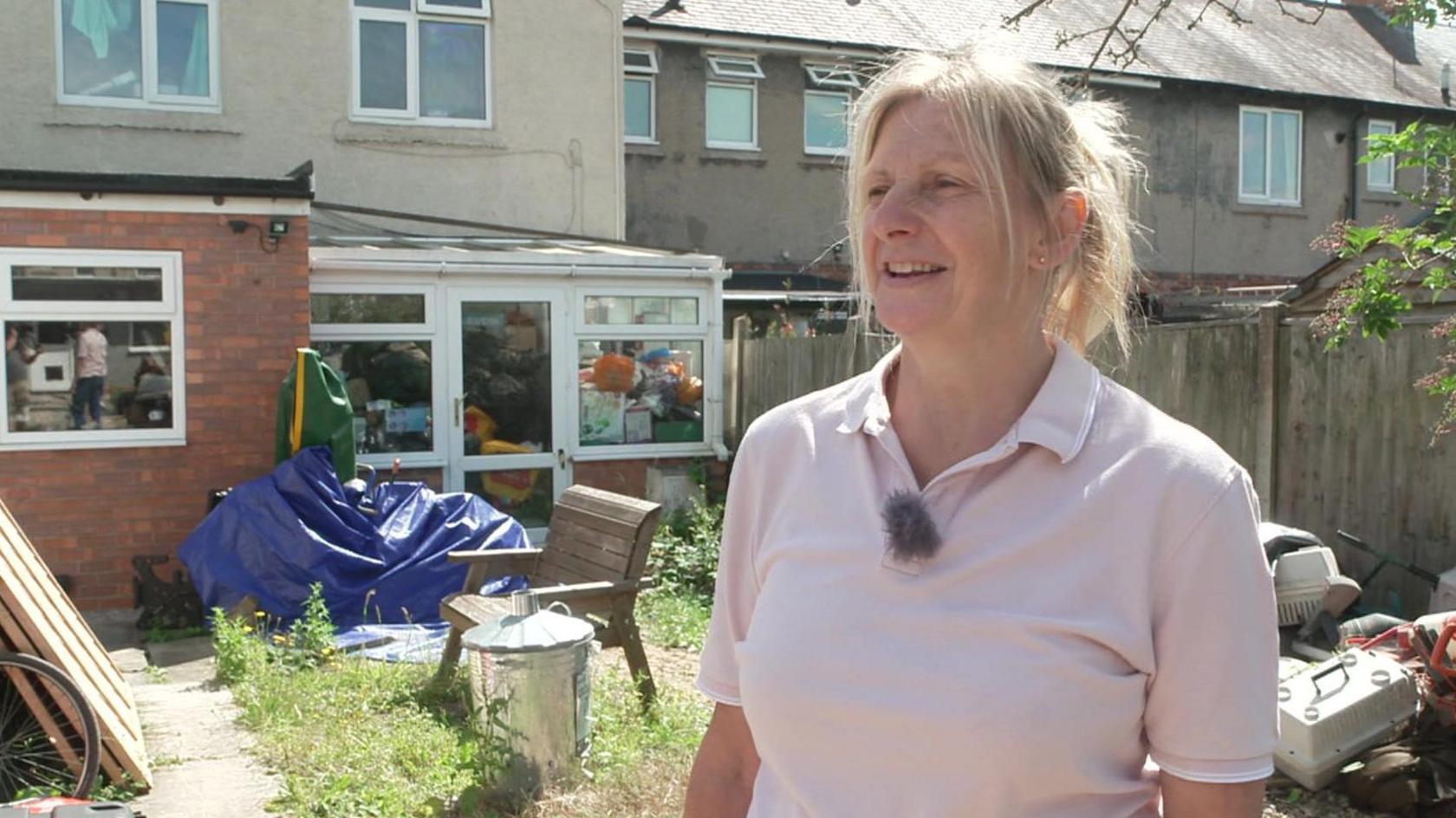
Michaela Shaw said de-cluttering people's homes was "so rewarding"
"It was literally full of clutter. Ian is a great collector of china," she said.
"We are just encouraging them to keep as much as they can for such a small bungalow."
Ms Shaw said as many as one in three people were hoarders.
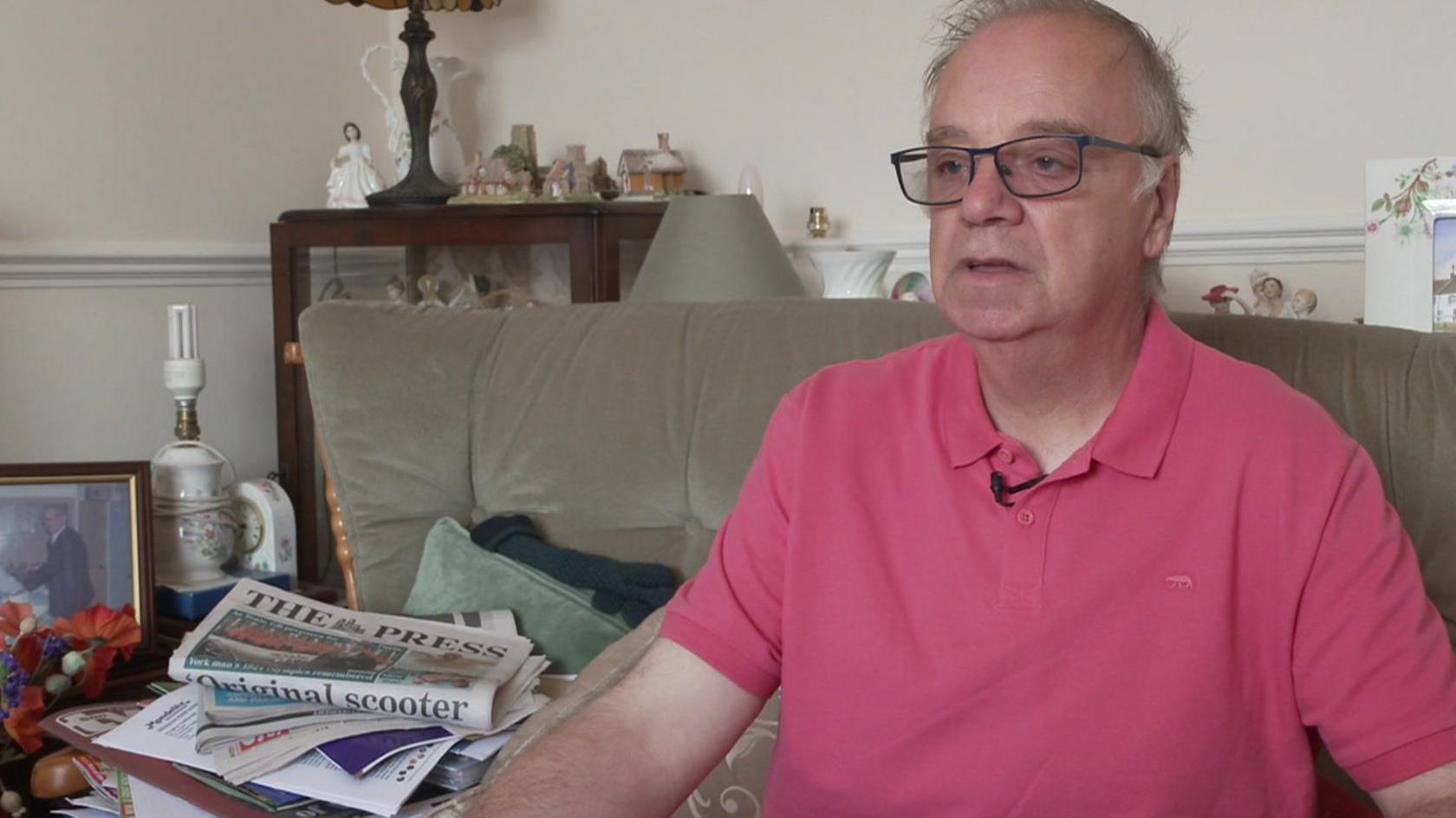
Retired cleaner Ian Cooper likes to collect "old-fashioned" items
"If we all sit back and think about what we do and what we have got in our homes, we will always find that drawer or shed or garage where we like to keep things," she added.
John Wilson asked Community Bees for help with a hoarding habit that began after his mother's death.
Clutter was piled high in his living room and he spent £10 a day on newspapers which he did not read, but did not throw away.
"My mother would say, 'John, what have you done?' " said Mr Wilson.
"It's a mess. I take a look at it sometimes and think 'God, where do I start?' "
He said he was "embarrassed and ashamed" about the state of his home and his dream was to "get it clean and tidy".
"I will not go back to the current level of mess because I have seen where it goes."
Community Bees was given a total of £393,000 from the National Lottery's Community Fund.
The organisation runs awareness and training days to dispel "myths" around hoarding, and also has a TikTok account where volunteers post content about their decluttering jobs and share tips for helping people struggling with hoarding.
Their service includes deep cleaning rooms, removing broken white goods and equipment, hiring skips and transporting items to the tip.
Community Bees has shared case studies online, including that of a woman in her 60s who had not let anyone into her York home for 20 years.
She eventually confided in concerned neighbours that she was depressed and ashamed of the state of her house.
The neighbours found that the property was almost impossible to enter because of bags of rubbish, and they could not access the bathroom, kitchen or bed.
The woman was living in a small space at the top of the stairs surrounded by a 5-6ft pile of rubbish. She had not used her wheelie bin for over a decade. She was eventually referred to the charity for help. Three skips were filled with 27 tonnes of waste during the week-long clearance.
Ms Shaw and a volunteer discovered evidence of a flood some years previously and the presence of vermin. There was no running water on the ground floor and the cooker did not work. The fridge was inaccessible, and the woman had not been able to store any food in it.
Community Bees arranged for a social services referral and Ms Shaw visits her every week.
Follow BBC Yorkshire on Facebook, external, X (formerly Twitter), external and Instagram, external. Send your story ideas to yorkshirestories@bbc.co.uk, external
Related topics
- Published25 May 2024
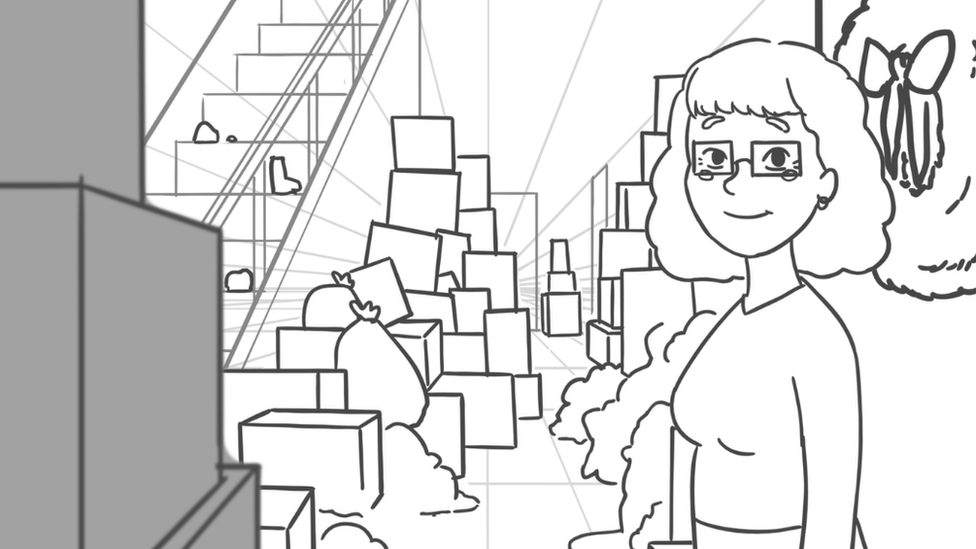
- Published26 January 2024
